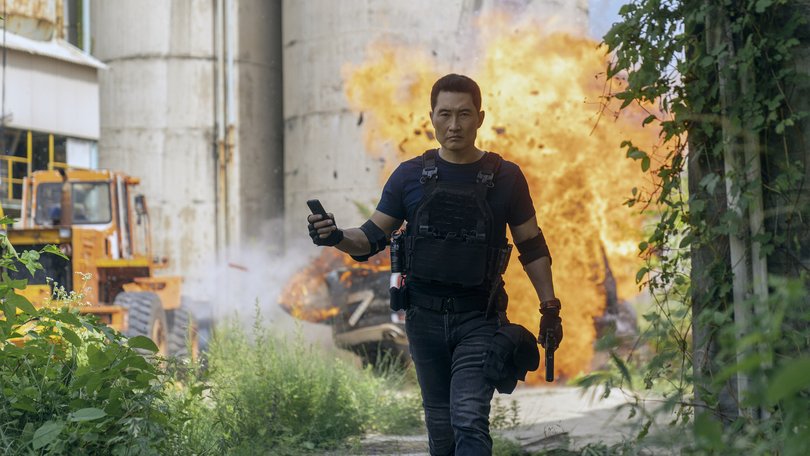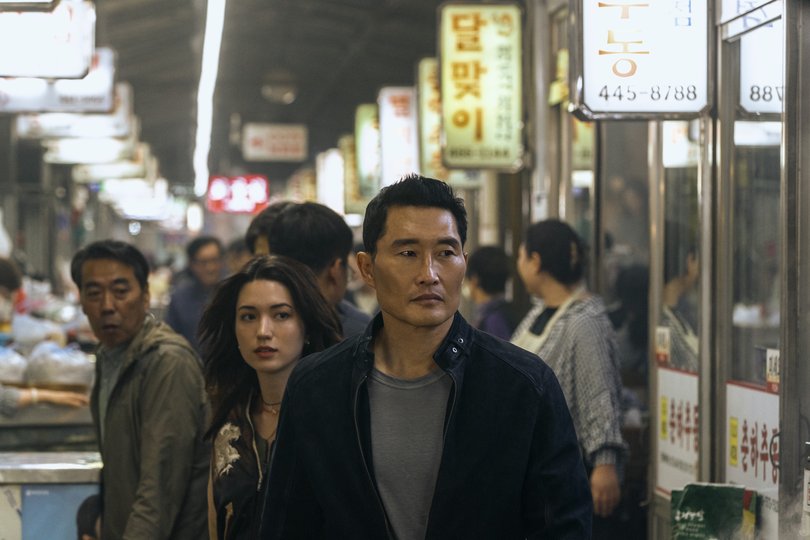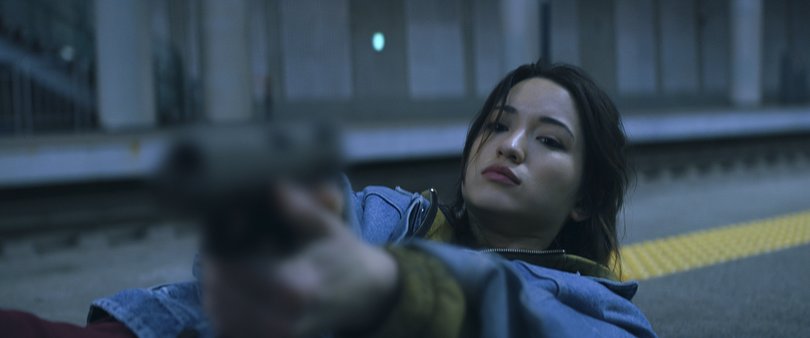Butterfly review: Even Daniel Dae Kim can’t save dead-on-arrival thriller
Daniel Dae Kim is always a compelling actor but even he can’t save this poorly written thriller where the only semi-bearable parts are when no one is talking.

There’s an algorithm somewhere, maybe ones and zeroes, or maybe a human, that looked at the combination of man-on-the-run, Daniel Dae Kim and South Korea, and went click, click, click!
On paper, it makes sense. Korean culture is hot. Daniel Dae Kim is hot. A man-on-the-run thriller is perennial.
In reality, thriller series Butterfly is a cold fish, dead on arrival.
Sign up to The Nightly's newsletters.
Get the first look at the digital newspaper, curated daily stories and breaking headlines delivered to your inbox.
By continuing you agree to our Terms and Privacy Policy.Kim plays David Jung, a former CIA operative turned private contractor turned faked-his-own-death guy. He now lives in Seoul, and after nine years in the wilderness, he resurfaces to foil an assassination plot. It’s not so much that he’s trying to save the target as he is trying to make contact with the assassin.
That’s Rebecca (Reina Hardesty), a ruthlessly efficient killer who happens to be (semi-spoiler alert, although this plot point is revealed midway through the first episode) David’s daughter.

She was a teenager when he disappeared, presumed dead, and he now wants to reconnect with her, and maybe save her from her terrible life choices. After David’s faked death, Rebecca became the protegee of David’s former business partner, Juno (Piper Perabo), a woman with seemingly no scruples.
Juno hires out her firm’s services to any despot or evildoer willing to pay, and readily sells out whoever she needs to for her own gain. She’s now trying to kill David and Rebecca. The only person she appears to have any loyalty to is son Oliver (Louis Landau).
She may be a mama bear when he’s in danger, but she’s not above putting him down on the regular.
The parent-child dynamic is supposed to be Butterfly’s main emotional thrust, but the way it’s executed is exhausting.
Rebecca carries a lot of pain and resentment from what she perceived as David’s abandonment of her as a child, even though he will tell her that it was for her safety. When she discovers that David remarried two years after his supposed death, her pettiness comes to the fore.
There is a world in which you could argue that because she lost her sole parent (there was a mother who died earlier) at the age of 14 or 15, her emotional maturity was arrested at the point of trauma, so she lashes out like a hurt teenager.

That’s the intellectual argument. What it really comes off as instead is a sociopath who behaves incredibly poorly at the worst possible time. Part of that is the flat performance from Hardesty but mostly it’s the bad writing.
The dialogue sounds like it was penned by AI. It has no natural flow and functions only to tick expositional boxes. The script isn’t capable of conveying the interesting aspects of this relationship so it looks like you’re watching some daytime soap whose brief doesn’t include realism.
The only time Butterfly is semi-bearable is when no one is talking. There are lots of serviceable action sequences which, while not wildly imaginative, are at least a reprieve from all the nonsense.
Guns are fired, knives are plunged and things go kaboom.
Seoul also happens to have some large, labyrinthine train stations that provide a good backdrop for a chase followed by fisticuffs. It’s not James Bond sprinting through Charing Cross in Skyfall or Jason Bourne trying to save Paddy Considine’s journalist character at Waterloo but it’s … fine.
Which is all a great shame because Kim (Lost, Joyride) really is a very compelling actor who can convincingly carry action and the emotional heft of a man with many regrets who keep forming new ones if he could just slow down long enough to realise that.
Kim is always super watchable but even his presence is not enough to override the balderdash of this so-called thriller.
Butterfly should never have emerged from the cocoon.
Butterfly is streaming on Prime Video from August 13

